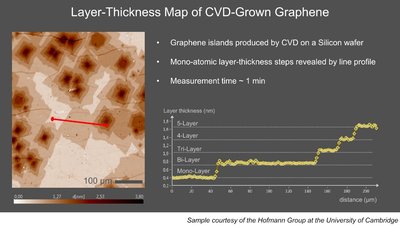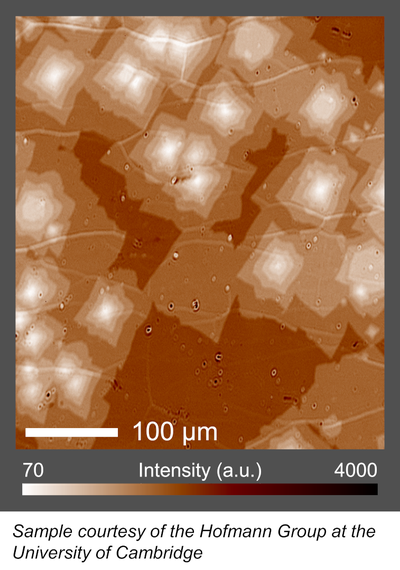Imaging Ellipsometry combines optical microscopy and ellipsometry for spatially resolved layer-thickness and refractive index measurements of micro-structured thin-films and substrates. It is an all-optical, non-destructive measurement technique, which is based on the sample’s interaction with polarized light. It is highly sensitive to single- and multi-layer ultrathin films, ranging from mono-atomic or monomolecular layers (sub-nm regime) up to thicknesses of several microns.
An Imaging Ellipsometer produces images of the measured quantities. The most prominent examples are so-called layer-thickness Maps, in which every image pixel is a measured thickness value (Fig.1).
Imaging Ellipsometers perform layer thickness measurements with a spatial resolution down to 1 µm, easily beating the resolution limits of conventional ellipsometers. They require no tight beam focusing to reach this resolution and provide the spatial information of the sample (e.g. a layer-thickness distribution) without the need to move and scan the sample during the process.
The combination of microscopy and ellipsometry also allows for the detection of smallest variations of film-thickness and refractive index already in the image live view, without the need to run a full ellipsometric measurement (Fig.2). This so called Ellipsometric Contrast- enhanced Microscopy (ECM) is a very fast and robust method for qualitative thin-film analysis, quality control and defect detection in fast mapping applications.














